She lost her 19 year-old- son in 2004 in a road mishap, and decided to donate his organs. Today, Lalitha is the country director of MOHAN Foundation, an NGO that propagates the cause of organ donation.
“My son was declared brain-dead after he met with a severe road accident on his birthday”, says Lalitha Raghuram, the Country Director of MOHAN Foundation, an NGO that encourages organ donation and transplantation. Swamy Narayan, Raghuram’s son, had come home to spend his Pongal vacation with the family; he was in the second-year of his engineering course at SRM, Chennai.
“On January 13, 2004, he went out to celebrate his birthday with his friends. Towards twilight, he called to inform that he would spend the night at a friend’s farmhouse. At 5am on the morning of January 14, I received a call from Kamineni Hospital saying that Swamy had been admitted after meeting with a road accident”, Raghuram recalls, adding that he was unconscious when he arrived at the hospital.
He was on his way back from Nagarjuna Sagar with three other friends when their car was hit by a lorry. Two of them, including Swamy, were seriously injured. Swamy was declared brain-dead by the doctors on the evening of January 14. His other friend who was critical passed away three days after the accident.
“I had been encouraging bereaved families to donate organs of their loved ones who were brain-dead and couldn’t be saved, before I found myself in their position. I used to tell them that I understand their predicament while counselling them, but I honestly didn’t until I was in their shoes. It was as though God was testing me”, says Raghuram. She had started the Hyderabad chapter of MOHAN Foundation in 2002. Prior to that, she had worked as the Executive Director of the Eye Bank Association of India for 10 years. She had spearheaded several awareness campaigns for eye donation, including the one featuring the former Miss World, and Actor Aishwarya Rai.
Over 300 people from the medicine field paid her son a visit in the hospital. Due to her active involvement with organ donation, every medical professional in the city knew her. “Our doctor said there was no pressure to donate Swamy’s organs just because I was working in the field”, she says.
Raghuram, her husband, mother-in- law and daughter had a long discussion over whether or not to donate Swamy’s organs, and the decision was affirmative. “We donated his eyes, liver and both kidneys on Jaunary 16. There is a sense of gratification in the knowledge that Swamy continues to live on in five other people”, she says.

Raghuram and her husband have counselled over 400 families since that day. They tell people that once they were in the same spot as them, which makes their appeal more genuine and easier to identify with. They have mostly succeeded in persuading people to donate; the conversion rate being 75-80%.
“It is never a good time to talk about organ donation”, Raghuram says, adding that the urgent need for the conversation arises only when the family is mourning over their loss. In happier times, the gravity of the cause is lost on people, mostly because they don’t think they will ever find themselves in that spot. In the hour of grief, it doesn’t strike them even if they were earlier onboard with the idea of organ donation. “Our transplant coordinators act as reminders in that hour. And our observation is that usually if the family is already apprised of organ donation, they respond positively in the situation”, she says.
Over 1200 people with medical and social backgrounds have been trained to assume the role of Transplant Coordinators since the launch of the Transplant Coordinators Training Programme in 2009. “It has yielded good results. Even the SAARC countries are going to emulate the model”, she says.
“The public and private sector need to work in tandem with each other to promote the cause”, she says, adding that the “National Organ & Tissue Transplant Organisation (NOTTO),” a national level agency under the Centre’s Ministry of Health and Family Welfare that works to promote organ donation, “needs to play a more proactive role.”
While NOTTO is still in its infancy, Raghuram thinks that it will help if the organisation held national advocacy programmes to facilitate organ donation. It could also opt for brand ambassadors to lend voice to the cause.
Hurdles to Organ Donation
Since road mishaps lead to a number of brain-dead victims, “they could also add a clause of organ donation on getting driving licenses”, she adds. One of the reasons why it’s difficult to tap into victims rendered brain-dead in road accidents for organ donation is because the involvement of police and forensics makes the procedure long and drawn out. Families tend to not agree because donating would mean that the body is opened twice, once for organ retrieval, and the second time for the post-mortem. Perhaps, the post-mortem formalities can be completed while organs are being retrieved, Raghuram says.
Even hospitals need to step up; the pool of donors is very thin. Not declaring brain-death, especially in time, means loss of potential donors. “Doctors often say that people are unwilling to donate. But in our experience, this isn’t true. People are willing if we talk to them sensibly and sensitively”, Raghuram says.
The problem, she says, is that doctors aren’t taught to declare brain-death in their medical curriculum. They are apprehensive because they think it’s “wrong” to do so, and “afraid” because they are unaware of the law regarding brain death. “They harbour the misconception that brain death must be declared only for the purpose of organ donation. We are also trying to educate the doctors.”
A popular narrative that discourages people from pledging their organs is that their religion forbids it, or doesn’t approve of it. To clear the air around it, members of MOHAN Foundation held a meeting about three years ago with religious leaders of all sects. “All of them unanimously agreed that religion does not hold back anyone from donating organs”, she says.
Illegal Organ Trading
While there is a need for approximately 1,50,000 kidneys across the nation, only 1000 are available. The wide gap between the demand and supply of organs gives a lot of space for illegal organ trading to mushroom. “In addition to calling and mailing, people often visit me to say that they want to sell their organs”, says Raghuram.
There are some who are desperate for organs at one end of the spectrum, and there are others desperate for money at the other end of the spectrum. Brokers exploit the situation and mint money at the expense of others’ misfortune. “Organs cannot be bought or sold; it’s illegal to do so. There are so many people whose health suffer after they’ve sold their organ”, she says. “They can’t afford post-operative care because of which their health deteriorates.” This black market will flourish as long as there are insufficient donors.
“There needs to be strict legislations against buying and selling of organs”, she says adding that the government must promote deceased organ donation.
Be An Organ Donor Message
“What use is our body after death? It will either be burnt or get buried. Why not donate your organs? Why not give a new lease of life to someone in dire need? It won’t cost you a single paisa. You will elevate the fate of those in need, and spread happiness with your act of generosity. Put yourself in place of someone fast approaching death due to organ failure, or someone whose loved one is in need of an organ. You can help them, and continue to live on.”


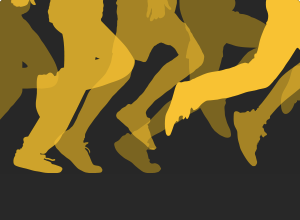

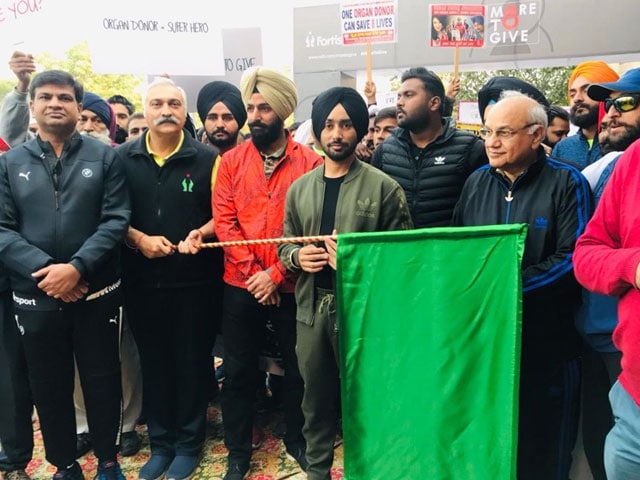

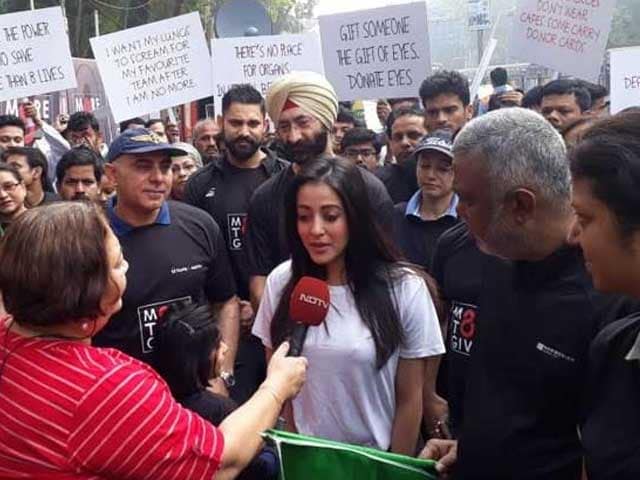
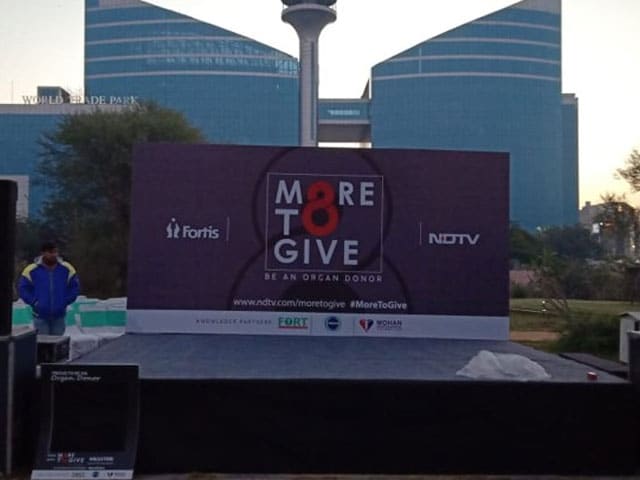
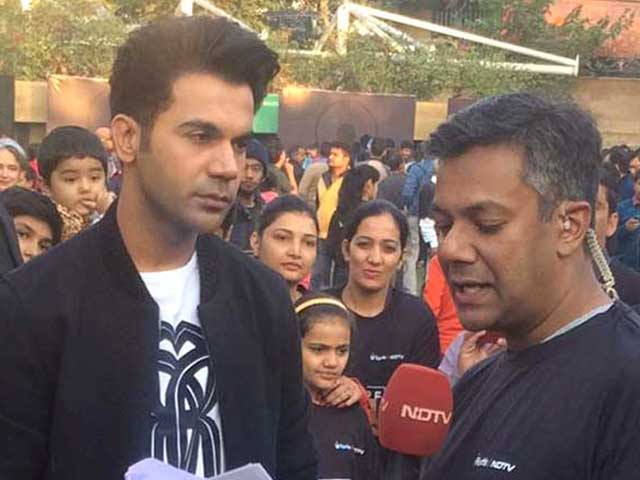


I know the case very well since she is my family friend and also distant cousins wife. It was testing time for the family. but today, I am proud of them since they did what they said to others. God bless such donors.
Lalitha Garu I did not know about this incident of You losing your Son Swamy in an Accident. I commend you for your dedication determination and diligence in thi Organ Donation Awareness Program May God be with YOU always in your humane endeavors – Dr Sriram Sonty